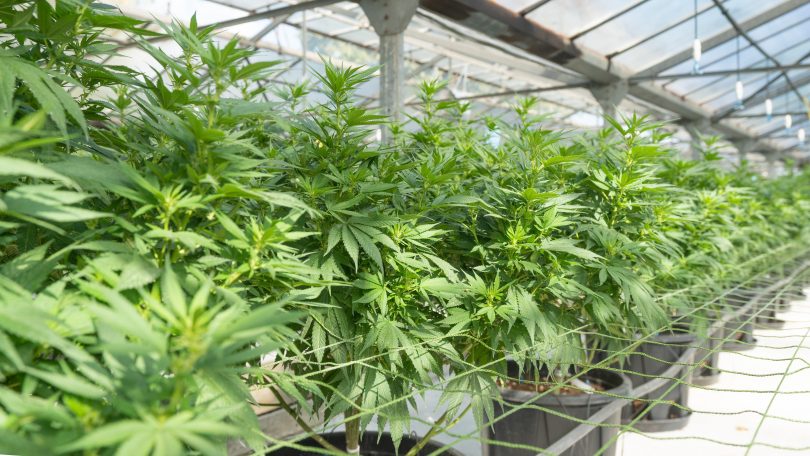The cannabis plant itself is at the heart of the industry. Due to this undeniable fact, cultivators are always searching for new ways to improve crop yields and increase concentrations of cannabinoids within the plants they harvest.
When it comes to growing any sort of crop, optimizing the plant’s ability to absorb and utilize nutrients from a growth medium, whether that’s soil, hydroponics, or aeroponics is crucial. Recent research indicates that including zeolites in the growth medium for cannabis plants increases nutrient absorption, boosts crop yield, and can produce higher cannabinoid concentrations.
What are Zeolites?
Zeolites are a naturally occurring mineral comprised of aluminum, silicon, and oxygen (aluminosilicates) that can act as chemical sponges for water and other nutrients in soil. They pull in and trap vital nutrients that plants can then access.
Zeolites do not break down in soil and can remain in place over long durations. These naturally occurring minerals are also non-toxic for humans and animals, making them an excellent choice for safety and environmental concerns.
Zeolites and Soil Quality
Zeolites help to make soil optimal for plant growth in a number of ways. [1,2] These minerals help to reduce the amount of water needed in some soils. They increase nutrient retention, decreasing the need for fertilizer and making those nutrients more readily accessible to the plants.
Zeolites also change the consistency of soil. They prevent soil from becoming compacted, and they allow more nutrients, water, and other particles to seep deeper into the ground. There is also evidence that zeolites promote soil aeration and pH balance.
These minerals also increase nutrient absorption in plants. One study by ZMM® Canada Minerals Corp. theorized that zeolites negatively charge soil. The negative charge enables the transfer of positively-charged nutrients into a plant’s roots.
Zeolites and Cannabis Yield
These benefits on soil quality and nutrient acquisition in plants sound nice, but they mean nothing without measurable results on crop yield. Fortunately, studies have been done on the impact of zeolites on cannabis crop yields, and they’re both fairly conclusive and encouraging.
ZMM® Canada Minerals Corp. found that zeolites increased the average weight per cannabis plant harvested by 7%. Another study by Progressive Plant Solutions went into far more depth. It found that the benefit of zeolites on crop yield varied between soil mediums, but was still noticeable. That study saw an overall increase in buds harvested, from an average of 118 grams to 123 grams in plants given a 10% zeolite in an organic soil mixture.
The same study measured the impact of zeolite in a peat-based soil mixture. That group saw an increase from 59 grams of bud per plant to 163 grams with a 10% zeolite mixture.
Zeolites and Cannabinoids
In addition, in increasing the overall yield of cannabis crops, zeolites have also been shown to increase the cannabinoid concentrations in harvested plants.
When zeolites were present in the soil of cannabis plants, the nutrient content of the soil dropped significantly. At the same time, the amount of essential nutrients found in the leaves of cannabis plants increased. These are the same nutrients cannabis plants use to construct cannabinoids. That same study found an average increase of 110% in the cannabinoid potency of harvested plants.
When comparing the impact of zeolites on two different soils, Progressive Plant Solutions found that in one organic soil, the presence of zeolites didn’t measurably increase cannabinoid content. However, it did find a significant increase in cannabidiol with a different peat-based soil mixture.
It’s clear that zeolites have the ability to increase cannabis yield and potency by trapping moisture and nutrients in soil while also facilitating their absorption into the plant’s root system.
References
[1] Reháková M, Čuvanová S, Dzivák M, Rimár J, Gaval’ová Z. Agriculture and the agrochemical uses of natural zeolite. Current Opinion in Solid State and Material Science. 2004;8:397-404. [journal impact factor = 11.354; times cited = 214] [2] Polat E, Karaca M, Demir H, Naci Onus A. Use of natural zeolite (clinoptilolite) in agriculture. Journal of Fruit and Ornamental Plant Research. 2004;12:183-189. [journal impact factor = N/A; times cited = 193]








